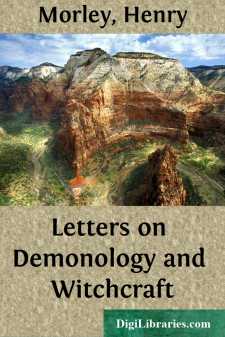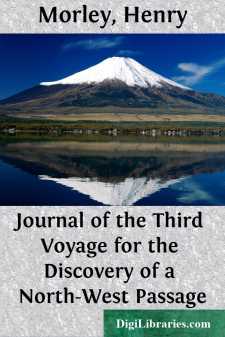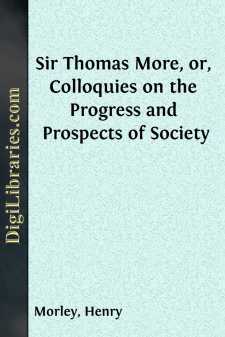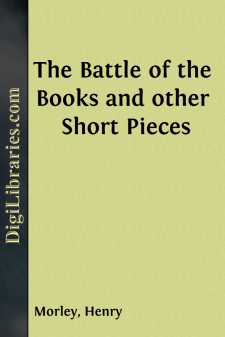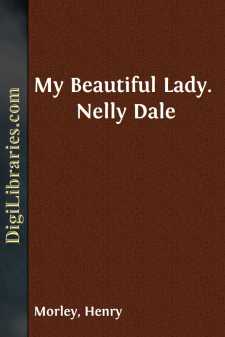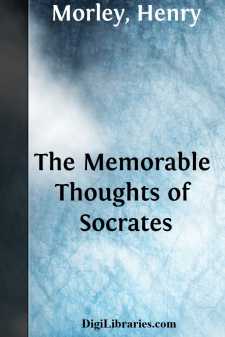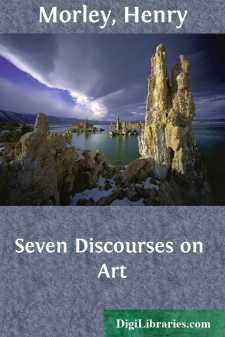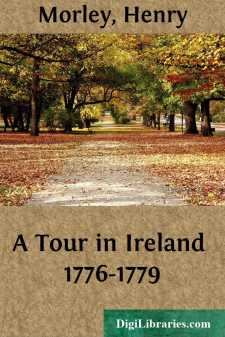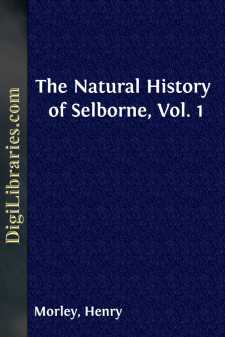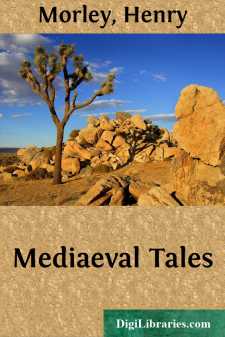Categories
- Antiques & Collectibles 13
- Architecture 36
- Art 48
- Bibles 22
- Biography & Autobiography 815
- Body, Mind & Spirit 144
- Business & Economics 28
- Children's Books 18
- Children's Fiction 14
- Computers 4
- Cooking 94
- Crafts & Hobbies 4
- Drama 346
- Education 58
- Family & Relationships 59
- Fiction 11833
- Games 19
- Gardening 17
- Health & Fitness 34
- History 1378
- House & Home 1
- Humor 147
- Juvenile Fiction 1873
- Juvenile Nonfiction 202
- Language Arts & Disciplines 89
- Law 16
- Literary Collections 686
- Literary Criticism 179
- Mathematics 13
- Medical 41
- Music 40
- Nature 179
- Non-Classifiable 1768
- Performing Arts 7
- Periodicals 1453
- Philosophy 65
- Photography 2
- Poetry 896
- Political Science 203
- Psychology 44
- Reference 154
- Religion 515
- Science 126
- Self-Help 85
- Social Science 82
- Sports & Recreation 34
- Study Aids 3
- Technology & Engineering 59
- Transportation 23
- Travel 463
- True Crime 29
Henry Morley
Henry Morley was a 19th-century British academic and writer, best known for his contributions to literature and education. He was a professor of English literature at University College London and authored numerous works, including biographical studies and literary criticism. Morley played a pivotal role in popularizing English literature through his editorial work on the influential "Cassell's National Library" series.
Author's Books:
Sort by:
by:
Henry Morley
INTRODUCTION. Sir Walter Scott's "Letters on Demonology and Witchcraft" were his contribution to a series of books, published by John Murray, which appeared between the years 1829 and 1847, and formed a collection of eighty volumes known as "Murray's Family Library." The series was planned to secure a wide diffusion of good literature in cheap five-shilling volumes, and...
more...
by:
Henry Morley
INTRODUCTION. William Edward Parry, the son of a physician, was born at Bath in December, 1790. At the age of thirteen he was entered as a first-class volunteer on board the flag-ship of the Channel fleet, and after seven years’ service and careful study of his profession he obtained a commission in 1810 as lieutenant in the navy. He was then at once, aged twenty, sent to the Arctic seas, where...
more...
by:
Henry Morley
It was in 1824 that Robert Southey, then fifty years old, published “Sir Thomas More, or Colloquies on the Progress and Prospects of Society,” a book in two octavo volumes with plates illustrating lake scenery. There were later editions of the book in 1829, and in 1831, and there was an edition in one volume in 1837, at the beginning of the reign of Queen Victoria. These dialogues with a...
more...
by:
Henry Morley
Jonathan Swift was born in 1667, on the 30th of November. His father was a Jonathan Swift, sixth of the ten sons of the Rev. Thomas Swift, vicar of Goodrich, near Ross, in Herefordshire, who had married Elizabeth Dryden, niece to the poet Dryden’s grandfather. Jonathan Swift married, at Leicester, Abigail Erick, or Herrick, who was of the family that had given to England Robert Herrick, the...
more...
by:
Henry Morley
INTRODUCTION. “A ray has pierced me from the highest heaven—I have believed in worth; and do believe.” So runs Mr. Woolner’s song, as it proceeds to show the issue of a noble earthly love, one with the heavenly. Its issue is the life of high endeavour, wherein “They who would be something moreThan they who feast, and laugh and die, will hearThe voice of Duty, as the note of...
more...
by:
Henry Morley
INTRODUCTION. This translation of Xenophon’s “Memorabilia of Socrates” was first published in 1712, and is here printed from the revised edition of 1722. Its author was Edward Bysshe, who had produced in 1702 “The Art of English Poetry,” a well-known work that was near its fifth edition when its author published his translation of the “Memorabilia.” This was a translation that...
more...
by:
Henry Morley
INTRODUCTION It is a happy memory that associates the foundation of our Royal Academy with the delivery of these inaugural discourses by Sir Joshua Reynolds, on the opening of the schools, and at the first annual meetings for the distribution of its prizes. They laid down principles of art from the point of view of a man of genius who had made his power felt, and with the clear good sense which is...
more...
by:
Henry Morley
INTRODUCTION. Arthur Young was born in 1741, the son of a clergyman, at Bradfield, in Suffolk. He was apprenticed to a merchant at Lynn, but his activity of mind caused him to be busy over many questions of the day. He wrote when he was seventeen a pamphlet on American politics, for which a publisher paid him with ten pounds’ worth of books. He started a periodical, which ran to six numbers. ...
more...
by:
Henry Morley
INTRODUCTION. Gilbert White was born in the village of Selborne on the 18th of July, in the year 1720. His father was a gentleman of good means, with a house at Selborne and some acres of land. Gilbert had his school training at Basingstoke, from Thomas Warton, the father of the poet of that name, who was born at Basingstoke in 1728, six years younger than his brother Joseph, who had been born at...
more...
by:
Henry Morley
This volume of "Mediæval Tales" is in four parts, containing severally, (1) Turpin's "History of Charles the Great and Orlando," which is an old source of Charlemagne romance; (2) Spanish Ballads, relating chiefly to the romance of Charlemagne, these being taken from the spirited translations of Spanish ballads published in 1823 by John Gibson Lockhart; (3) a selection of stories...
more...


